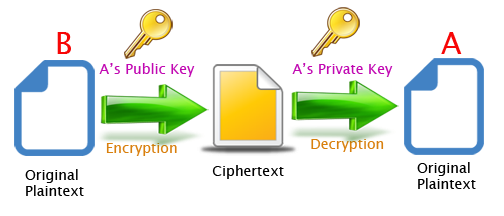Java Generate Aes Symmetric Key
Posted By admin On 13.12.20- Jan 06, 2018 AES, also known by its original name Rijndael, was selected by the NIST in 2000 to find a successor for the dated Data Encryption Standard(DES). AES is a block cipher, that means encryption happens on fixed-length groups of bits. In our case the algorithm defines 128 bit blocks. AES supports key lengths of 128, 192 and 256 bit.
- Create symmetric key janainakey09 with algorithm = aes256 encryption by certificate shipping04; go B. Creating a temporary symmetric key The following example creates a temporary symmetric key called #MarketingXXV from the pass phrase: The square of the hypotenuse is equal to the sum of the squares of the sides.
AESKeyGeneration.java generates the sysmetric key using AES algorithm. Key size assigned here is 128 bits. It works for key size of 192 and 256 bits also by adding secuirty.

Key generators are constructed using one of the getInstance class methods of this class.
KeyGenerator objects are reusable, i.e., after a key has been generated, the same KeyGenerator object can be re-used to generate further keys.
There are two ways to generate a key: in an algorithm-independent manner, and in an algorithm-specific manner. The only difference between the two is the initialization of the object:
- Algorithm-Independent Initialization
All key generators share the concepts of a keysize and a source of randomness. There is an
initMac os 10.68 download. method in this KeyGenerator class that takes these two universally shared types of arguments. There is also one that takes just akeysizeargument, and uses the SecureRandom implementation of the highest-priority installed provider as the source of randomness (or a system-provided source of randomness if none of the installed providers supply a SecureRandom implementation), and one that takes just a source of randomness.Since no other parameters are specified when you call the above algorithm-independent
initmethods, it is up to the provider what to do about the algorithm-specific parameters (if any) to be associated with each of the keys. - Algorithm-Specific Initialization
For situations where a set of algorithm-specific parameters already exists, there are two
initmethods that have anAlgorithmParameterSpecargument. One also has aSecureRandomargument, while the other uses the SecureRandom implementation of the highest-priority installed provider as the source of randomness (or a system-provided source of randomness if none of the installed providers supply a SecureRandom implementation).
In case the client does not explicitly initialize the KeyGenerator (via a call to an init method), each provider must supply (and document) a default initialization.
Every implementation of the Java platform is required to support the following standard KeyGenerator algorithms with the keysizes in parentheses:

- AES (128)
- DES (56)
- DESede (168)
- HmacSHA1
- HmacSHA256